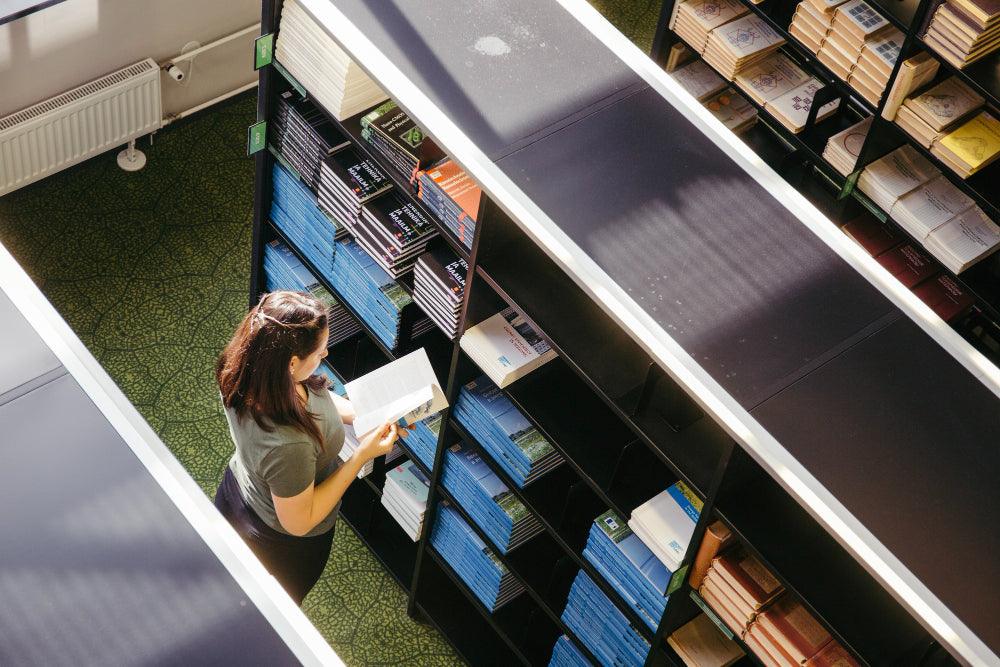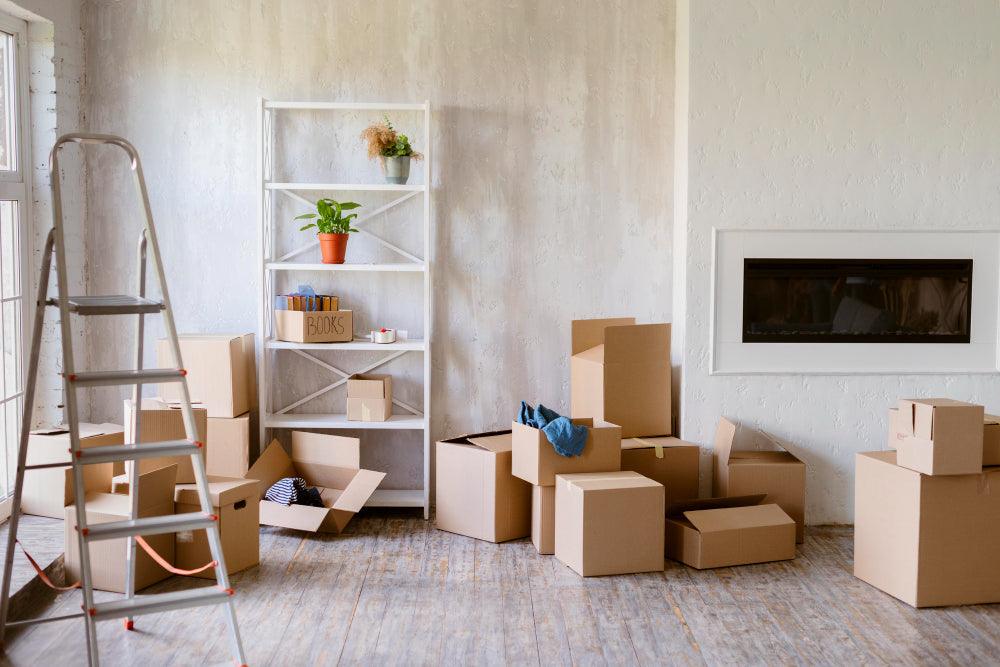Preparing to study abroad brings a mix of excitement and practical challenges, with one of the biggest questions being how to handle storage while studying abroad for your belongings. Creating a solid storage plan before your international adventure not only protects your possessions but also gives you peace of mind to fully embrace your time studying overseas.
First, Check with Your University
Before you start packing, contact your university's international student office to learn about any specific storage guidelines or restrictions. Some universities offer temporary college storage facilities for international students during breaks, while others have partnerships with professional campus storage companies.
Many institutions also offer specific guidelines about permitted items and documentation requirements for international students, helping you avoid last-minute packing changes or storage complications.

Pre-Storage Planning (6-8 Weeks Before)
Starting your storage planning early is crucial for a smooth transition into your study abroad experience. Beginning 6-8 weeks before your departure gives you enough time to organize everything properly and avoid last-minute stress.
Creating a Comprehensive Inventory List
Start room by room, documenting everything you own. Take photos of valuable items and create a digital spreadsheet noting the description, condition, and estimated value of each item. This will help you track what you've stored and serve as documentation for insurance purposes.
Categorizing Items
Divide your belongings into four categories: items to take abroad, items to store, items to sell, and items to donate. Focus on keeping essential clothing, important documents, and study materials for abroad.
Store necessities and valuable and sentimental items that you'll want upon return. Consider selling expensive yet easily replaceable items and donating gently used items you no longer need.
Measuring Large Items and Calculating Space
Take precise measurements of furniture and large items you plan to store. Include height, width, and depth measurements of beds, desks, dressers, and other substantial pieces. Calculate the total cubic footage needed and add 25% extra space to ensure comfortable access to your belongings.
Budgeting for Storage Costs
Factor in all potential expenses, including monthly rental fees, insurance, packing supplies, and transportation costs. Research average storage costs in your area and plan for the entire duration of your study abroad program, plus an extra month for flexibility. Many storage facilities offer student discounts, so be sure to ask about special rates.
Researching Storage Facilities
Investigate storage options near your home or university, focusing on security features, climate-controlled storage unit options, access hours, and overall reputation. Visit potential self-storage facilities in person to assess cleanliness and security measures.
Consider the convenience of location for anyone who might need to access your items while you're away, and carefully review the facility's insurance requirements and payment terms.

What to Store vs. What to Take
After you’ve checked with your university, you can now make these decisions. Here's how to sort through your possessions effectively and make sure nothing important gets left behind or unnecessarily stored.
Essential Items to Pack
Focus on versatile items that will serve you well during your time abroad. Pack clothing suitable for your destination's climate, your laptop and essential electronics for school-related purposes, important documents, and any prescription medications you need. Remember that most countries use different electrical outlets, so bring appropriate adapters for your devices.
Items Worth Storing
Some belongings are worth keeping but won't serve you during your time abroad. Consider storing seasonal clothing you'll want when you return, furniture that's expensive to replace, and electronics you won't need overseas. Sports equipment, musical instruments, and books you'll want to keep are also good candidates for storage. Quality items that you've invested in but won't need immediately deserve a spot in your self-storage unit.
Valuable and Sentimental Items
Take special care when deciding what to do with valuable or irreplaceable items. Family heirlooms, jewelry, and items with significant emotional value should be carefully stored or left with trusted family members. If you decide to store these items, consider a climate-controlled unit and make sure they're properly wrapped and protected.
Packing and Organization Strategies
Getting your packing strategy right makes a huge difference in keeping your belongings safe and organized during storage. Here's how to pack efficiently and protect your items while they await your return.
Best Packing Materials and Supplies
Start with sturdy moving boxes in various sizes rather than reused grocery boxes that might collapse. You'll need packing tape, bubble wrap, packing paper, and furniture covers. For clothing, consider vacuum storage bags to save space and protect against moisture. Invest in wardrobe boxes for hanging clothes you want to keep wrinkle-free. Small boxes work best for heavy items like books, while larger boxes are perfect for lighter items like bedding.
Efficient Box Labeling Systems
Create a simple but effective labeling system using large, clear writing on multiple sides of each box. Include the room the items belong in, general contents, and any handling instructions. For example: "BEDROOM - Winter Clothes - STORE FLAT." Number your boxes and keep a corresponding inventory list on your phone. Color-coding boxes by room or category can also make organization much simpler when you return.
Space-saving Packing Techniques
Pack strategically to maximize your storage space. Fill hollow items like wastebaskets or storage bins with smaller items. Roll your clothing instead of folding to prevent wrinkles and save space. Disassemble furniture when possible, keeping all hardware in labeled zip-top bags taped to the corresponding furniture piece. Stack boxes strategically, with heavier items on the bottom and lighter ones on top.
Protecting Fragile Items
Give extra attention to breakable items by wrapping them individually in bubble wrap or packing paper. Create buffer zones around delicate pieces using clothing or towels as padding. Never pack fragile items near the edges of boxes where they're more likely to receive impact. Mark these boxes clearly as "FRAGILE" and include arrows showing which side should stay up.
Creating a Digital Inventory
Take photos of valuable items before packing them, including any existing damage or wear. Photograph the contents of each box before sealing it, and take pictures of the electronics' serial numbers. Create a simple spreadsheet listing each box's number, contents, and storage location. Store these photos and your inventory list in the cloud, where you can access them from abroad if needed.

Storage Safety and Security
While some universities offer storage options for international students, these facilities often come with drawbacks like manual labor requirements, difficulty locating specific items, and transportation challenges.
For many students, professional campus storage outside their respective university is more convenient with better security.
When selecting a storage facility, insurance should be a top priority. Basic facility coverage often isn't enough for valuable items, so consider supplementing with additional insurance. Many homeowner's or renter's insurance policies can extend to storage units, typically offering better rates than facility-provided coverage. Document everything with photos and keep digital copies of insurance paperwork.
Security features are crucial for peace of mind while you're abroad. Choose facilities with 24/7 surveillance cameras, individual unit alarms, gated access with personal codes, and on-site management. Well-lit exteriors and regular security patrols add extra layers of protection. Some premium facilities even offer biometric access systems or real-time security notifications.
Climate control is worth the additional cost, especially for long-term storage. These units maintain consistent temperature and humidity levels, protecting your belongings from extreme weather, moisture damage, and mold growth. They're particularly important for electronics, wooden furniture, books, and clothing. Quality facilities also implement regular pest control measures and conduct routine inspections to ensure your items remain in perfect condition throughout your time abroad.
Storage Tips for Long-Distance Management
Managing your stored belongings while studying abroad is much simpler with proper preparation. Here are the key steps to ensure smooth long-distance management:
-
Choose a reliable local contact (family member or close friend) and officially authorize them with the storage facility. Give them your unit's layout map, inventory list, and clear instructions about your organization system. Having someone you trust who can physically check on your belongings provides invaluable peace of mind.
-
Set up automatic payments through your storage facility's online system before departure. Keep a dedicated account with sufficient funds and ensure your payment method won't expire while you're away. Save digital copies of payment confirmations and maintain a small financial buffer for unexpected expenses.
-
Store all important documents in the cloud, including your inventory spreadsheet, photos of stored items, facility contract, insurance paperwork, and unit access codes. This digital organization makes sure you can access crucial information from anywhere in the world.
-
Establish multiple communication channels with your storage facility, including their emergency contact numbers, email addresses, and online portal access. Make sure they have current contact information for both you and your local contact person. Some facilities offer mobile apps that let you manage your account and receive important notifications while abroad.
Your Storage Plan: The Final Checklist
Planning your storage strategy before studying abroad is a key step in preparing for your international adventure. This guide outlines the essential steps to ensure your belongings stay safe and secure while you're away. With your storage details organized, you can focus on what really matters—making the most of your study abroad experience.



